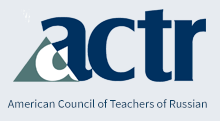Russian Language Journal
Keywords
language, proficiency, Russian, education, foreign
Abstract
Studies of students’ foreign language proficiency—including Carroll (1967), Magnan (1986), and Thompson (1996)—have shown that students in their fourth year of language study typically demonstrate oral proficiency in the intermediate range. Thompson’s study found the median score of students’ oral proficiency in the fourth year to be at the intermediate high/advanced threshold, but her subjects at this level of instruction were students at Middlebury’s summer language program and were tested in the last week of the program. In my own teaching practice, I have found that most of the students majoring in Russian at the University of Wisconsin-‐‑Madison graduate with an oral proficiency rating at the intermediate-‐‑mid level, sometimes at the intermediate-‐‑high level, and very rarely at the advanced level. This usually occurs only with very gifted students who have spent an entire year in Russia. The majority of students in our graduate program who enroll directly upon completing their BAs demonstrate the same range of levels of oral proficiency as those completing their BAs at our university, regardless of their undergraduate institution (excluding from consideration graduate students who are native speakers of Russian or another Slavic language).
Recommended Citation
Rifkin, B. (2010). A Case Study of the Acquisition of Narration in Russian: At the Intersection of Foreign Language Education, Applied Linguistics, and Second Language Acquisition. Russian Language Journal, 60(1). https://doi.org/10.70163/0036-0252.1178


